White House: Ukraine Aid Held Up in Part Over Election Probe
Trump's chief of staff says the president did nothing improper—because he was asking for help investigating what occurred in 2016.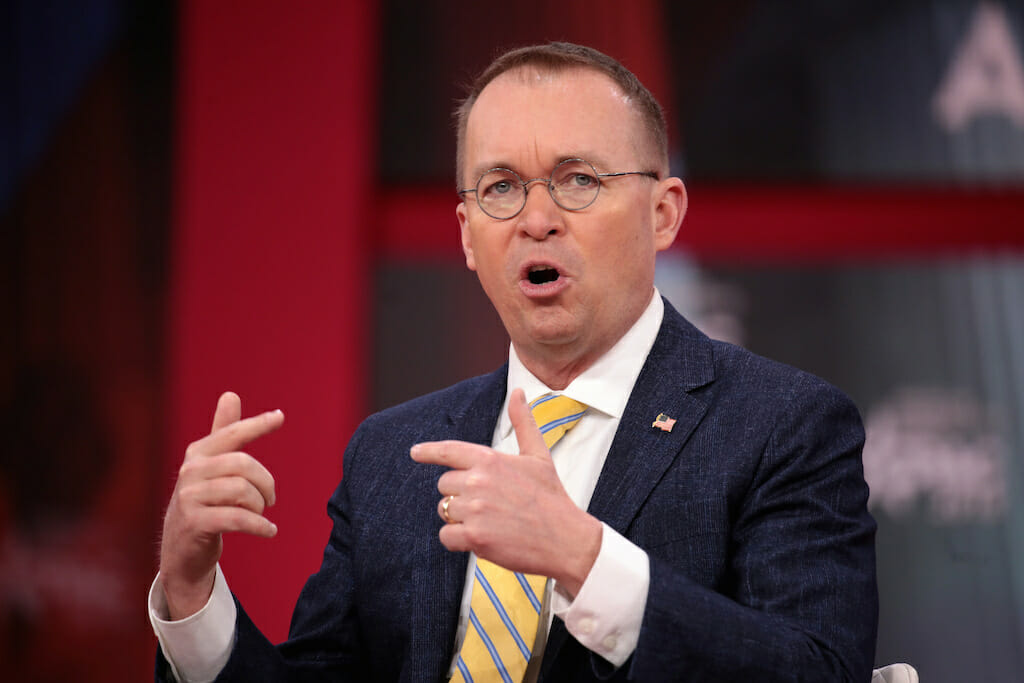 White House chief of staff Mick Mulvaney in 2018. (Gage Skidmore/CC BY-SA 2.0)
White House chief of staff Mick Mulvaney in 2018. (Gage Skidmore/CC BY-SA 2.0)
WASHINGTON — The White House acknowledged Thursday that President Donald Trump’s decision to hold up military aid to Ukraine was linked to his demand that Kyiv investigate the Democratic National Committee and the 2016 U.S. presidential campaign.
The admission from acting chief of staff Mick Mulvaney raised questions at the Justice Department and brought swift rebuke from Democrats, who cast his words as an admission of wrongdoing. Mulvaney said Trump did nothing improper because he was asking for help investigating a prior election, not seeking assistance with the 2020 contest. It’s illegal to seek or receive foreign help of value in a U.S. election.
In the White House’s most granular explanation of the decision to withhold military aid from Ukraine, Mulvaney said the president’s move was part of efforts to clean up corruption in the Eastern European country. He appeared to be referring to unsubstantiated conspiracy theories about a purported Ukrainian link to Russia’s hack of the DNC during the last presidential election.
“The look back to what happened in 2016 certainly was part of the thing that he was worried about in corruption with that nation,” Mulvaney told reporters in the White House briefing room.
“Did he also mention to me in the past the corruption that related to the DNC server? Absolutely, no question about that,” Mulvaney continued. “That’s why we held up the money.”
Mulvaney’s comments suggested a quid pro quo was at play for the military aid — but a different one than Democrats initially highlighted at the start of the impeachment probe. Democrats are probing whether Trump sought Ukraine’s help with investigating baseless corruption allegations about Democratic rival Joe Biden and other allegations from a government whistleblower’s compliant.
As for complaints about mixing politics with foreign policy, Mulvaney had a blunt rejoinder: “I have news for everybody: Get over it. There is going to be political influence in foreign policy.”
Trump’s personal lawyer Jay Sekulow issued a pointed statement distancing the president’s legal team from Mulvaney’s comments.
“The President’s legal counsel was not involved in acting chief of staff Mick Mulvaney’s press briefing,” it said.
Mulvaney later issued a statement claiming his comments had been misconstrued.
“Let me be clear, there was absolutely no quid pro quo between Ukrainian military aid and any investigation into the 2016 election,” he said. “The president never told me to withhold any money until the Ukrainians did anything related to the server.”
However, Mulvaney at the briefing had directly cited questions about the DNC server as a reason the money for Ukraine was being held up.
A rough transcript of a July call between Trump and Ukrainian President Volodymyr Zelenskiy shows the U.S. leader raised both Biden and the DNC hack.
Democratic Rep. Adam Schiff, the chairman of the Intelligence Committee leading the impeachment probe, said, “I think Mr. Mulvaney’s acknowledgment means that things have gone from very, very bad to much, much worse.”
Unfounded conspiracy theories about a Ukraine link to the DNC hack began circulating almost immediately after it was discovered. Some propagated by Russian media and online included mention of a supposed “hidden DNC server,” which acolytes of the Republican political operative Roger Stone picked up and circulated.
Mulvaney defended Trump’s actions by casting them as part of an ongoing Justice Department investigation looking into the origins of another probe: the counterintelligence investigation into Russia’s interference in the 2016 election.
But a senior official at the Justice Department said if the White House was withholding aid in regard to cooperation with any investigation at the department, that was news to them. The official was not unauthorized to discuss the situation and spoke on condition of anonymity.
Mulvaney, who has already received a subpoena for documents in the impeachment probe, will now likely be asked by investigators to appear for a deposition.
The sudden development during a rare appearance by an administration official in the White House briefing room punctuated another fast-moving day in the impeachment investigation.
Lawmakers met for hours behind closed doors with the U.S. ambassador to the European Union, Gordon Sondland, who testified that he disagreed with Trump’s decision to have envoys work with the president’s personal lawyer Rudy Giuliani on Ukraine policy, rather than through traditional government channels.
The ambassador was the latest in a series of witnesses, many of them career State Department and foreign policy officials, providing new and detailed concerns about Trump and Giuliani and their attempts to influence Ukraine.
Sondland’s attempt to stand apart from Trump is remarkable since, unlike other career civil servants, he is a hand-picked political appointee of the president who contributed $1 million to Trump’s inaugural committee.
Mulvaney defended Trump’s decision to tap Giuliani to help lead Ukraine policy, saying it was the president’s prerogative.
“You may not like the fact that Giuliani was involved,” he told reporters. “It’s not illegal, it’s not impeachable.”
“The president gets to set foreign policy, and he gets to choose who to do so, as long as it doesn’t violate any law,” Mulvaney added.
Democrats plodding their way through hours of witness testimony during a week of closed-door hearings said Mulvaney’s admissions were game-changing in the impeachment inquiry.
Rep. Eric Swalwell, D-Calif., a member of the House Intelligence Committee, said Mulvaney “co-signed the president’s confession.”
Mulvaney said the 2016 election investigation was one of several reasons Trump held up nearly $400 million in military aid to Ukraine, including a desire for European nations to increase their own assistance to Kyiv.
He denied there was a quid pro quo and said, “We do that all the time with foreign policy.” He pointed to the example of the administration holding up aid to Central American countries to force them to change their policies on immigration.
___
Associated Press writers Mike Balsamo, Eric Tucker and Darlene Superville in Washington contributed to this report.
Your support matters…Independent journalism is under threat and overshadowed by heavily funded mainstream media.
You can help level the playing field. Become a member.
Your tax-deductible contribution keeps us digging beneath the headlines to give you thought-provoking, investigative reporting and analysis that unearths what's really happening- without compromise.
Give today to support our courageous, independent journalists.
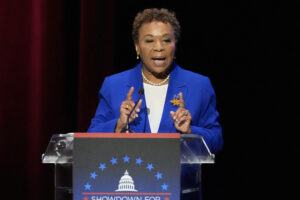
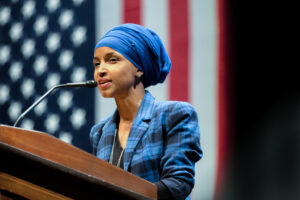
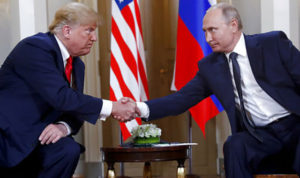
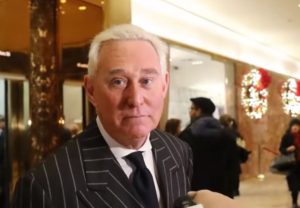
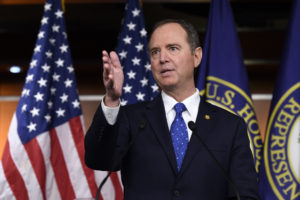
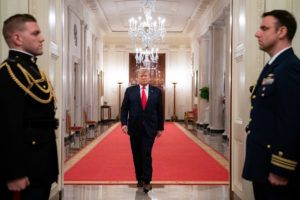
You need to be a supporter to comment.
There are currently no responses to this article.
Be the first to respond.